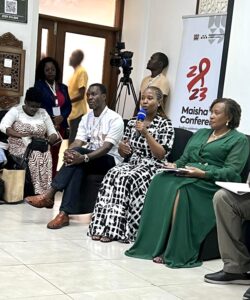Enhancing Condom Regulation for Public Health, August 31, 2023


Mombasa, KENYA – Condoms have long played a pivotal role in safeguarding public health by preventing unintended pregnancies and curtailing the transmission of sexually transmitted diseases. Recognizing their critical function, condoms have been incorporated into the regulatory landscape as medical devices.
During a recent panel discussion on condom regulation at the Maisha Conference, Dr. Paulyne Wairimu, Medical Devices Lead at the Pharmacy and Poisons Board (PPB), emphasized the importance of this regulatory framework. She stated, “The Pharmacy and Poisons Board (PPB) ensures post-market surveillance to maintain adherence to standards and swiftly detect falsified devices, with a primary focus on prioritizing public health.”
Within this regulatory context, condoms are classified as medical devices, with their categorization based on risk. They fall into Class C, signifying a high level of regulatory control, as any failure to perform according to their intended use could have significant consequences for users.
Dr. Wairimu pointed out that “The PPB established a regulatory framework for medical devices in 2011, aligning it with international standards and facilitating digital market authorization submissions. This framework expedites approvals and timelines, including the UNFPA prequalification process for condom manufacturers.”
The PPB has established a robust post-market surveillance system, periodically assessing product conformity, aiding in the detection and removal of counterfeit condoms from the market.
She emphasized that “Collaborative efforts extend beyond borders, with Kenya’s regional reference laboratory, hosted by the Kenya Bureau of Standards, contributing to post-market surveillance in the region. Data sharing with organizations like the UNFPA helps monitor the broader regional landscape.”
The commitment to stringent regulation underscores the importance of safe and effective condoms in maintaining public health.

